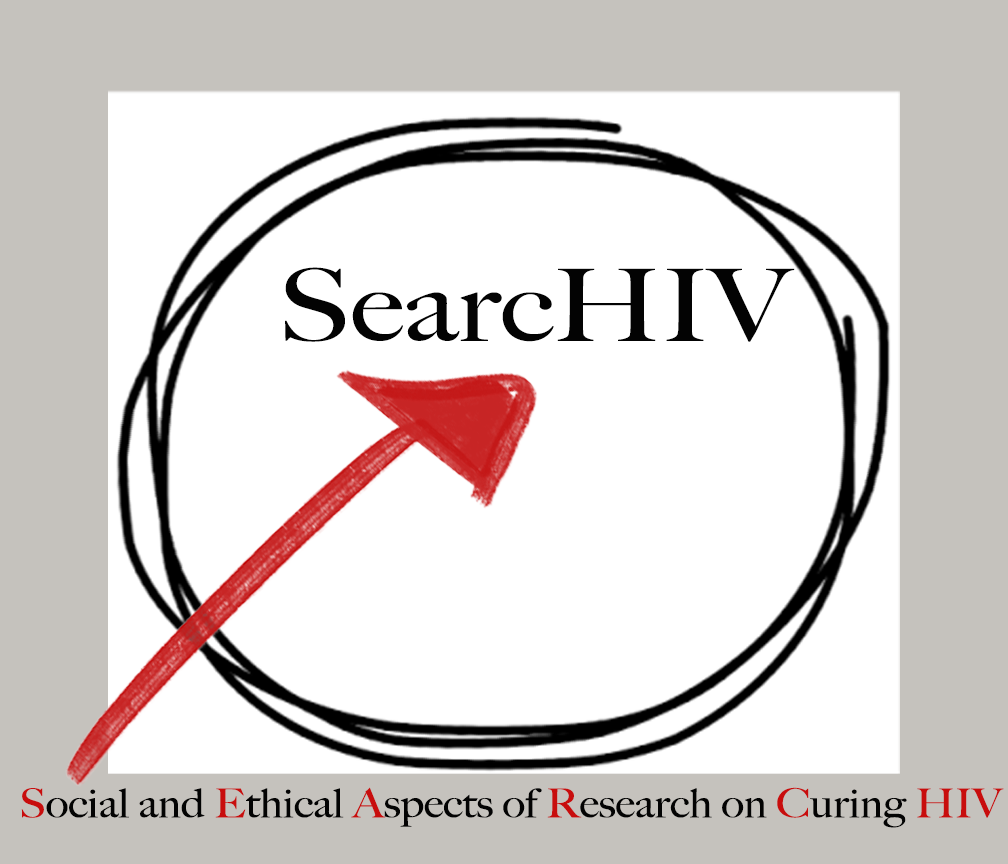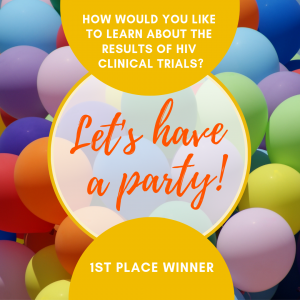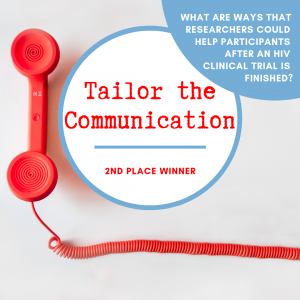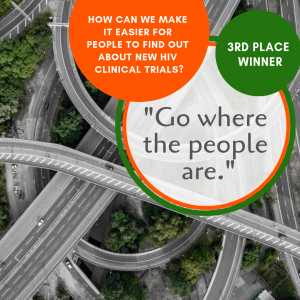ACCESS Study
ACCESS Crowdsourcing Contest:
Announcing Our Winners!
From December 2018 – February 2019, we held a crowdsourcing contest as a part of ACCESS (The Acceptability of Combined Community Engagement Strategies Study). The goal of the contest was to obtain community members’ ideas for how HIV clinical researchers can give back to the community.
We received 40 IDEAS for our contest! Ideas were judged by a panel of experts in HIV research and community engagement based on three criteria: creativity, feasibility, and potential for positive impact.
We are thrilled to announce the winning ideas!
1st PLACE WINNER
Contest question: How would you like to learn about the results of HIV clinical trials?
Winning Idea: Let’s have a party!
Details: Host a ‘wrap party’ or ‘study reunion’. Invite stakeholders, participants, staff, etc. Share findings, outcomes, thank people for being a part of it, and FEED THEM!
2nd PLACE WINNER
Contest Question: What are ways that researchers could help participants after an HIV clinical trial is finished?
Winning Idea: Tailor the communication
Details: Ask if they would be interested in receiving the results of the study. If so ask if they want a letter, text or by e-mail and ask if the researchers can contact them after the study (for follow-up, and/or participation in any future study). Giving them a number to call if they have any questions after the study is always a good idea. For those who don’t want to be contacted, you could let them know that the results (preferably in pamphlet mode) will be available where they were first contacted. It could be a long time before results are published or even presented at a major conference, so let them know what the timeline might be before you can give out the results. In order to have the trust of the participant you should let them know their personal results in real time unless it is blinded. But when they get the final results, that might have been blinded, they should at least know what arm of the study that they were in, i.e. placebo or active arm.
3rd PLACE WINNER
Contest Question: How can we make it easier for people to find out about new HIV clinical trials?
Winning Idea: “Go where the people are”
Details: Go where the people are. ASOs [AIDS service organizations] would be a good start but you’d also want to specifically concentrate on women’s groups. Posters and pamphlets at clinics that treat people with HIV, so that people may take the info home. Concentrate on the ASOs that have drop-in services (these places usually have more people that have been living with HIV for a long time). Children’s hospitals that have pediatric clinics for HIV are a good place to find young people who were born with HIV and their mothers. There are some groups who deal with ethnic communities who are positive. Peep shows and other places (saunas etc.) where men who have sex with men [MSM] go; many of these men do not identify as gay but as MSM or straight. At all pride celebrations and other celebrations such as gay movie festivals. At any clinics that are somewhat anonymous, for those who are getting tested for STDs. Any pamphlets or posters should suggest that you bring one to someone you know who might be interested. Finally, I would also suggest that you consider swingers’ clubs and porno cinemas that cater to heterosexual couples. Raves would also be a good place and put an advertisement in gay magazines. You could also have someone on dating sites who can look for potential candidates and some sites actually accept advertisements that are directed at people with HIV.
CONGRATULATIONS TO OUR WINNERS!
THANK YOU to everyone who submitted an idea for our contest!
Your feedback will help HIV researchers to improve the experiences of HIV clinical trial participants and tailor trials to community members’ needs and concerns.
For more information about the study, please contact Dr. Suzanne Day at suzanne.day@med.unc.edu or 919-699-7993. For questions about your rights as a research participant, contact The University of North Carolina Institutional Review Board at 919-996-3113 or IRB_subjects@unc.edu. This study was reviewed by the University of North Carolina Institutional Review Board, IRB #17-2332.





